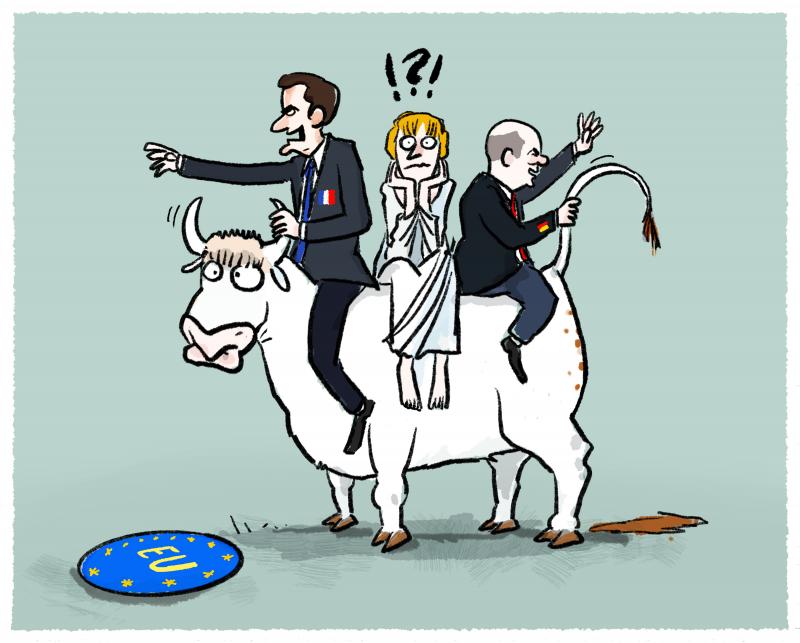Simultaneous Crises in Paris and Berlin Threaten Stability as Global Challenges Mount
France Faces Political Collapse
French President Emmanuel Macron’s government stands on shaky ground. Marine Le Pen, leader of the National Rally party, has threatened a no-confidence vote against Macron over his contentious budget. This follows Macron’s party’s defeat in parliamentary elections earlier this year, which saw the leftist alliance emerge as the largest bloc.
If Macron loses the no-confidence vote, he may have to form a new government or resign. Either outcome could drastically alter France’s political landscape, further destabilizing an already fragile administration.

Germany’s Government in Disarray
Germany’s political scene is equally tumultuous. Chancellor Olaf Scholz recently dismissed his finance minister, sparking a crisis ahead of February’s snap election. Polls suggest the Christian Democratic Union (CDU), led by Friedrich Merz, could emerge victorious, potentially marking a significant shift in German politics.
The leadership vacuum in Berlin comes at a critical time for Germany, the EU’s economic engine. Any prolonged instability could have far-reaching consequences for the bloc.
US-EU Relations at Risk
The timing of these crises couldn’t be worse. As Donald Trump prepares for a potential return to the White House in January, the EU faces new challenges. Trump has already threatened to impose a blanket tariff of up to 20% on non-Chinese imports to the United States, which could severely impact European economies.
The war in Ukraine further complicates matters. Trump’s promise to broker a swift peace deal could strain transatlantic relations, particularly if his approach undermines EU priorities in the region.

Economic Warning Signs
Adding to the EU’s troubles, the International Monetary Fund (IMF) recently highlighted its economic challenges. The IMF warned that Europe is falling behind the United States, with the gap expected to widen by the end of the decade.
Key issues include an aging workforce and low productivity growth. Alfred Kammer, the IMF’s Europe director, noted the growing disparity, which he described as unprecedented and deeply concerning for the bloc’s long-term competitiveness.
Simultaneous political crises in France and Germany, combined with economic struggles and external pressures, place the European Union in a precarious position. As global uncertainties rise, the EU’s ability to navigate these challenges will define its future. Stability in Paris and Berlin remains critical for the bloc’s cohesion and global standing.
Our Visitor






 Users Today : 42
Users Today : 42



